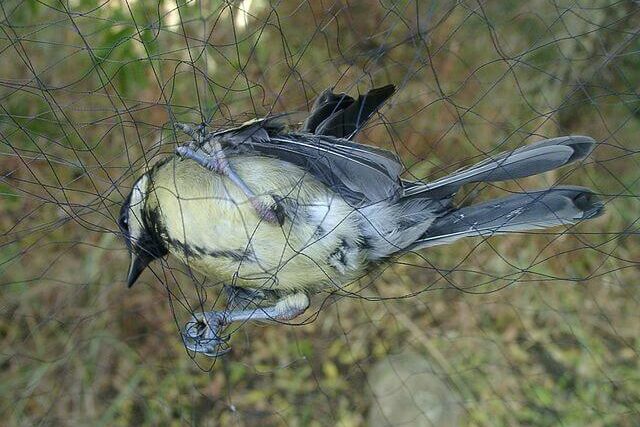
A recent report reveals a disturbing surge in wildlife crime on the Mediterranean island of Cyprus, where over 400,000 songbirds fell victim to trapping and killing last autumn.
Organised crime syndicates employ decoys and sound systems mimicking birdsong to attract small avians, such as robins and sparrows, into nets coated with adhesive or ensnared by branches. These birds, coveted for their meat, particularly for the traditional dish “ambelopoulia,” are clandestinely sold to eateries.
Compiled by BirdLife Cyprus with assistance from the RSPB and the Committee Against Birds Slaughter (Cabs), the report underscores a stark escalation in bird fatalities, with 435,000 birds perishing in autumn 2023 alone, marking a troubling increase of 90,000 from the previous year.
Martin Hellicar, the director of BirdLife Cyprus, said: “Despite the very good progress made in recent years, this autumn was a reminder that this can be quickly reversed if enforcement resources are not maintained.”
Cyprus serves as a crucial stopover for birds during their autumn migration from European breeding grounds to African wintering sites. Species like blackcaps, flycatchers, chiffchaffs, and warblers are among those targeted, many of which face decline, even in the UK.
Despite the outlawing of bird trapping for consumption in 1974, the illicit trade persists on an industrial scale. While efforts by law enforcement, BirdLife Cyprus, Cabs, and the RSPB have curbed trapping over the years, substantial challenges remain.
Tragically, over 2 million birds were annually ensnared two decades ago, with millions perishing in the 1990s. Authorities discovered extensive netting stretching over 4.5km, with a notable increase observed in the British military base, the Sovereign Base Area (SBA), which saw a 41% rise in trapping activity.
However, the effectiveness of anti-poaching measures was compromised by significant reductions in the resources of the SBA anti-poaching unit at the outset of the autumn 2023 trapping season.
The report said: “This season was a good case study of what can happen when police resources are removed/redirected from illegal trapping enforcement and deterrence action.”
Mark Thomas, head of RSPB investigations, highlights the lucrative yet low-risk nature of organised bird trapping, stressing the imperative for bolstered law enforcement resources to combat this criminal activity effectively.
“We cannot allow the progress we have made to be undone and the shocking levels of songbird killings to return to the abhorrent levels we once saw,” he said.
“For two decades, our international partnership has shown that we can work together to tackle this criminal activity through direct action on the ground backed up by enforcement action,” he said. “However, this autumn shows that more still needs to be done, particularly in the Republic of Cyprus.”
Hellicar said BirdLife Cyprus has been growing an awareness-raising campaign that aims to “achieve a change in the hearts and minds of the local culture, from eating to protecting and appreciating them [birds]”.
“This is an even greater challenge to overcome, but we are committed to continuing and confident that eventually we will see a positive behavioural change in favour of bird conservation,” he added.
As bird populations continue to face peril, concerted efforts are needed to safeguard these vital ecosystems.
——————————————————————————
At Natural World Fund, we are passionate about stopping the decline in our wildlife.
The decline in our wildlife is shocking and frightening. Without much more support, many of the animals we know and love will continue in their decline towards extinction.
When you help to restore a patch of degraded land through rewilding to forests, meadows, or wetlands, you have a massive impact on the biodiversity at a local level. You give animals a home and food that they otherwise would not have had, and it has a positive snowball effect on the food chain.
We are convinced that this is much better for the UK than growing lots of fast-growing coniferous trees, solely to remove carbon, that don’t actually help our animals to thrive.
This is why we stand for restoring nature in the UK through responsible rewilding. For us, it is the right thing to do. Let’s do what’s right for nature!
Donate today at https://naturalworldfund.com/ and join in the solution!

